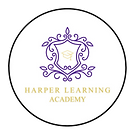
Interpersonal/Social Learning Style: Learn with Connection
In the world of education, recognizing and accommodating diverse learning styles is essential for maximizing student potential. Interpersonal learning style is a prominent learning preference. Learners who have this style prefer social interactions and collaborating with others. They enjoy working together.
At Harper Learning Academy, we understand the significance of this style and its impact on student development. We foster connection and collaboration in education, its characteristics, benefits, and strategies to cultivate it within educational settings.
Understanding the Power of Connection
The social learning style revolves around students working together, interacting with peers, and resolving conflicts in group settings. Individuals with a strong inclination towards connecting with others excel in understanding and relating to people. Social learners exemplify effective team members and problem solvers.

Benefits of Collaborative Learning
-
Enhanced Communication Skills: Students who thrive in collaborative learning environments develop strong communication skills, both verbal and nonverbal. They can express their ideas effectively and actively listen to others, facilitating constructive dialogue within groups.
-
Improved Empathy and Understanding: Collaborative learners develop a keen sense of empathy and understanding, enabling them to appreciate diverse perspectives. This skill fosters inclusivity, respect, and cooperation among group members.
-
Effective Collaboration and Teamwork: Students with a natural affinity for collaboration excel in team environments. They thrive when working with others, valuing teamwork and contributing positively to group dynamics. This ability enhances problem-solving skills and promotes collective success.
-
Conflict Resolution: Collaborative learners possess a natural talent for resolving conflicts. They are skilled at mediating disputes, finding common ground, and maintaining harmonious group relationships. This proficiency contributes to a positive learning environment and promotes healthy social interactions.
Strategies to Cultivate Collaborative Learning
To foster collaborative learning and support students with this learning style, educators can employ the following strategies:
-
Encourage Group Work: Incorporate opportunities for students to participate in group projects, discussions, and problem-solving activities. Group learning experiences allow them to interact with peers, share ideas, and collaborate towards common goals.
-
Encourage Peer Interaction: Set up activities that enable students to work together in pairs or small groups. This will help them build relationships, share views, and help with understanding people and resolving conflict. This approach promotes social interaction and strengthens connections.
-
Utilize Role-Playing and Simulations: Implement role-playing exercises or simulations that require students to assume different roles and engage in social scenarios. These activities develop empathy, perspective-taking, and problem-solving skills within a safe and controlled environment.
-
Incorporate Collaborative Learning Strategies: Integrate strategies such as group discussions, brainstorming sessions, and peer teaching. These approaches encourage students to actively engage with one another, share knowledge, and learn from their peers.
-
Provide Opportunities for Clubs and Social Gatherings: Establish extracurricular clubs or social gatherings where students can connect with like-minded peers who share common interests. These settings foster a sense of community, allowing students to develop social skills, build friendships, and engage in group activities.
Famous Personalities with Strong Collaborative Learning Abilities
Several well-known individuals exemplify exceptional collaborative learning abilities, leveraging their strengths to achieve success and make a positive impact:
-
Barack Obama: The former U.S. President has strong communication skills. He is able to connect with different groups of people. He is able to inspire collective action through effective dialogue and diplomacy.
-
Oprah Winfrey: The media mogul and philanthropist's ability to engage and understand others has contributed to her success. Her empathetic interviewing style and ability to create meaningful connections have resonated with audiences worldwide.
-
Mahatma Gandhi: Gandhi was a leader and advocate for peace. He had an exceptional ability to connect with others and resolve conflicts peacefully. He was able to inspire social change through nonviolent means, which showcases his collaborative nature.
-
Eleanor Roosevelt: The former First Lady demonstrated remarkable social skills as a diplomat, activist, and humanitarian. Her ability to build relationships, foster understanding, and collaborate with diverse groups made significant contributions to society.
-
Martin Luther King Jr.: Dr. King's social skills played a pivotal role in the Civil Rights Movement. His effective communication, coalition-building, and ability to navigate complex social dynamics led to lasting change and inspired millions worldwide.
Strategies to Cultivate Collaborative Learning
Embracing the collaborative nature of the interpersonal/social learning style nurtures student growth by fostering connection, collaboration, and understanding. At Harper Learning Academy, we recognize the importance of cultivating these skills and their impact on student development. By promoting communication, collaboration, and empathy, we create an environment where students with this learning style can thrive.
Enroll at Harper Learning Academy, where we celebrate and utilize the power of collaborative learning. We give students the tools to reach mastery in life by forming meaningful relationships and having collective experiences. Together, let's unlock the potential of this learning style and pave the way for lifelong success.
%20%20(1).png)